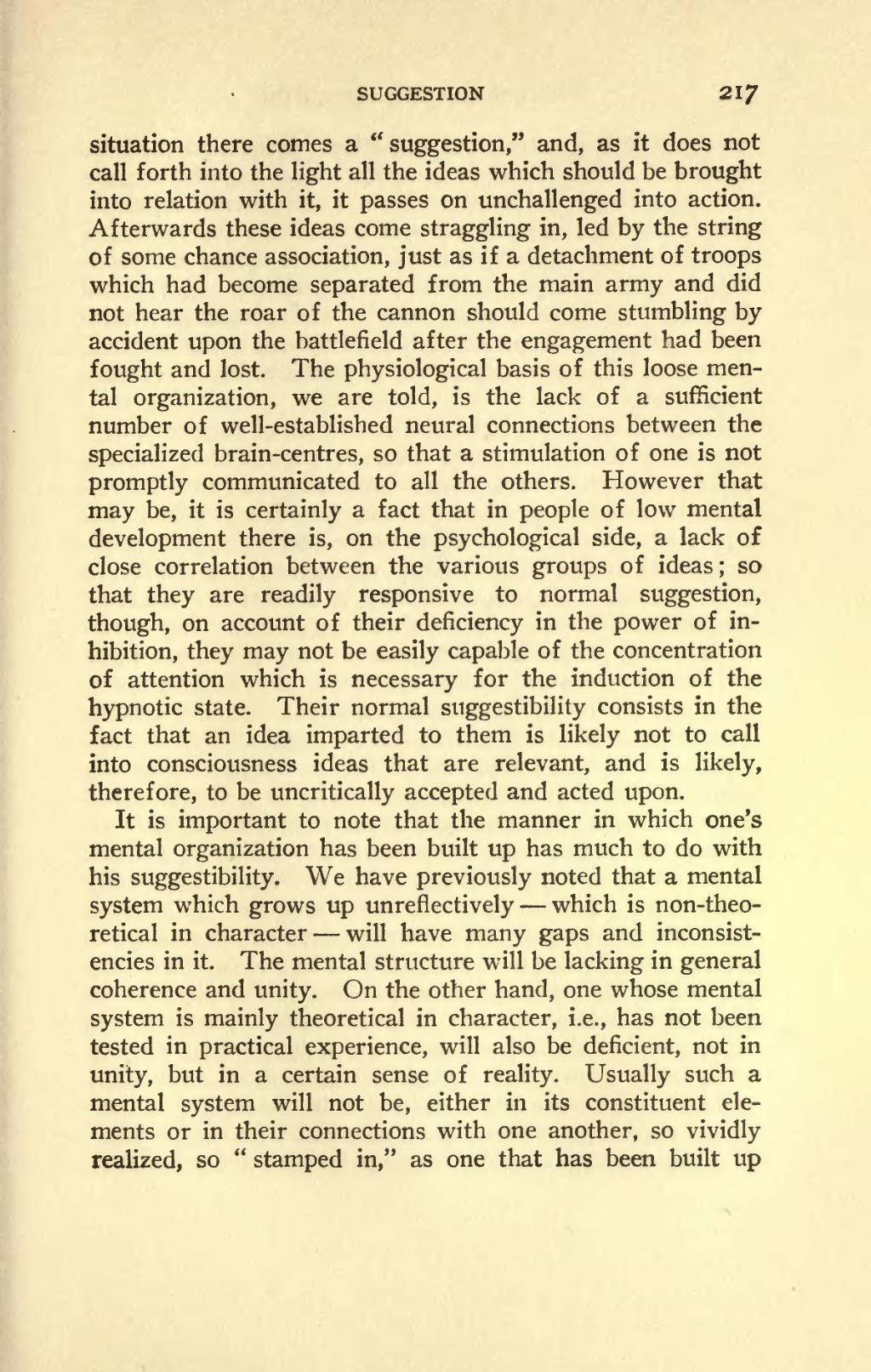SUGGESTION 217
situation there comes a "suggestion," and, as it does not call forth into the light all the ideas which should be brought into relation with it, it passes on unchallenged into action. Afterwards these ideas come straggling in, led by the string of some chance association, just as if a detachment of troops which had become separated from the main army and did not hear the roar of the cannon should come stumbling by accident upon the battlefield after the engagement had been fought and lost. The physiological basis of this loose men tal organization, we are told, is the lack of a sufficient number of well-established neural connections between the specialized brain-centres, so that a stimulation of one is not promptly communicated to all the others. However that may be, it is certainly a fact that in people of low mental development there is, on the psychological side, a lack of close correlation between the various groups of ideas; so that they are readily responsive to normal suggestion, though, on account of their deficiency in the power of in hibition, they may not be easily capable of the concentration of attention which is necessary for the induction of the hypnotic state. Their normal suggestibility consists in the fact that an idea imparted to them is likely not to call into consciousness ideas that are relevant, and is likely, therefore, to be uncritically accepted and acted upon.
It is important to note that the manner in which one s mental organization has been built up has much to do with his suggestibility. We have previously noted that a mental system which grows up unreflectively which is non-theo retical in character will have many gaps and inconsist encies in it. The mental structure will be lacking in general coherence and unity. On the other hand, one whose mental system is mainly theoretical in character, i.e., has not been tested in practical experience, will also be deficient, not in unity, but in a certain sense of reality. Usually such a mental system will not be, either in its constituent ele ments or in their connections with one another, so vividly realized, so " stamped in," as one that has been built up
�� �
